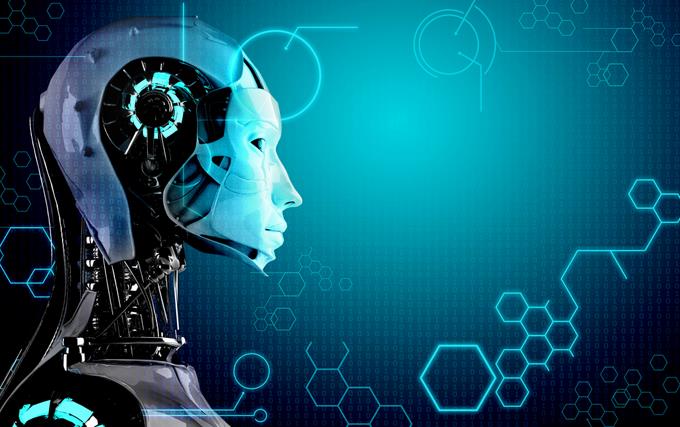The fifth industrial revolution pokes its nose into the global economy dressed in state-of-the-art technology still in scientific evidence, and in countries like the Dominican Republic it poses essential challenges that challenge governments, academies, productive sectors and individually the new generations that will face the future.
Here we present an interesting interview, exclusive for Listín Diariowith international data scientist, researcher and consultant, Jose Luis Corica.
What are we talking about when foreshadowing the 5th. Industrial Revolution?
History shows us that the emergence of a disruptive technology, capable of causing quantitative changes, generates a new stage characterized by transformations in most of the parameters of society. Therefore, it is not a question of variations on the same technology, but of conceptual changes.
In the fourth industrial revolution that we are going through, we went from automated workstations (with an assisted operator) to robotic workstations (without an operator). From people learning to learning machines.
What will be the differentiating characteristics of this stage with the 4th. Industrial revolution that is lived today?
A fifth industrial revolution will come from the hand of new disruptive technologies that make a qualitative transformation, because without them there is no “new” revolution. From this point of view, the technologies that are emerging as disruptive are many, but they are still completely experimental.
In my opinion, the fifth industrial revolution has two serious prospects. Quantum computing on the one hand and the internet brain interface on the other. The time will come when we consult the internet with our thoughts. There we will have a new era and therefore a new industrial revolution.
What changes are estimated to be generated in industries and labor markets?
It is a difficult question, since we are talking about immature technologies today, but we can try to visualize an industry and a society in the age of quantum computing and the internet brain interface.
Quantum computing associated with an internet that is managed by thought would allow real-time detection of needs based on data, consumption, to build and process instant trends about what people are thinking.
We can imagine AI algorithms doing the design and testing of those products and manufacturing in fully robotic plants. An industry with autonomy to produce goods and services with little or no human supervision.
This would impact labor markets because it will take a very strong set of soft skills to get people to take on jobs that machines can’t.
How will the relationship between human capital and production change?
Contrary to the dystopias (imaginary societies) that science fiction usually shows, I am convinced that each disruptive technology brings with it an opportunity.
The Dominican Republic has announced a strategic plan for technological innovation that aligns the national vision and has a good chance of exceeding government policy and becoming a state policy agreed upon by all parties.
In addition, it has a technology provision strategy for teachers and students, with connectivity of educational centers and a very clear ministerial vision. In fact, it is the first country in which the education minister is a historical benchmark at the international level in virtual education and a highly prestigious pioneer in the modality.
If the country continues with this type of policy, it has a very successful future in the current industrial revolution and also in the next one.
What are the great challenges that it will generate for the new generations?
The challenges are primarily educational and cultural. New technologies are always facilitators and generators of free time and the challenge is what to do with this free time.
Intellectual preparation, continuous learning, the will to excel, perseverance, creativity, leadership, cultivation of affection and humanism will undoubtedly be the challenges of the new generations that were born immersed in technology.
Could this new industrial revolution create more or less social inequality and gender gap?
History shows very clearly that each industrial revolution has brought more prominence to women and greater progress in closing the gender gap. Today practically no job requires physical strength, most of them are ubiquitous, and require strong intellectual preparation, nor is it a secret that female enrollment exceeds male enrollment throughout the region.
Regarding social inequality, in my opinion this is a consequence and not a cause. The real cause is poverty and its consequence is social inequality. Poverty is fought with equal possibilities at the beginning and I must mention it here too, the equalizing efforts that the Dominican educational system is making are worthy of imitation in the rest of the region.
What are your recommendations?
The first recommendation would be to create equal starting points throughout the population to guarantee the right to education, which is a right that establishes rights.
To governments that listen and incorporate their data scientists. I read with pleasure that the government of the Dominican Republic summoned the experts of the Dominican Society of Artificial Intelligence.
It is to be hoped that they incorporate the intellectual and transformative power of the experts they have there (some in my opinion border on the category of geniuses). I also read that the Dominican shopping portal is launching the incorporation of data science in the prevention of corruption. I think those are examples to follow.
Regarding the academy, I think that what is coming is the digital transformation of the educational system, especially the university system.
Finally, regarding people, not neglecting affection and using technology for personal growth and development. We are the human beings who must make the technological decisions and not the technologies that decide how we want to live.
